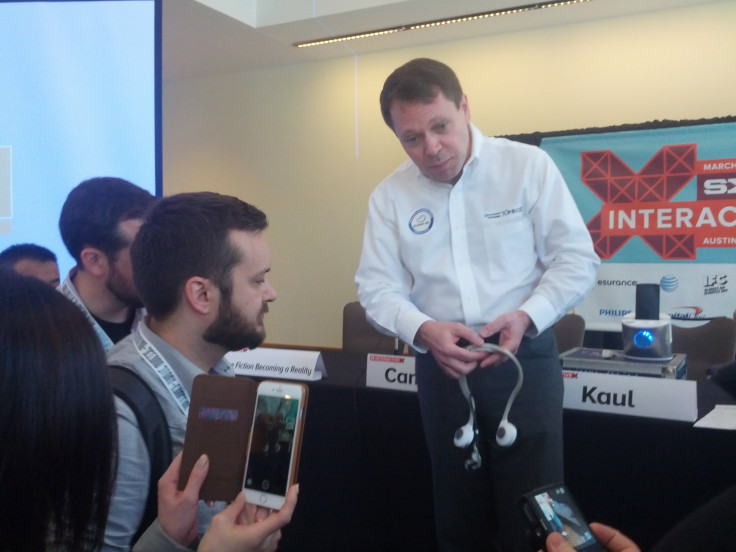SXSW 2015: Cloud DX's Medical Tricorder Is Straight Out Of 'Star Trek' (Sort Of)

AUSTIN, Texas -- Hold onto your Spock ears – real-life tricorders are on their way. At a Monday panel here during SXSW, Canadian health care company Cloud DX unveiled its own version of the multipurpose Star Trek gadget. It’s a wearable that can diagnose up to 15 different diseases, monitor five separate vital signs continuously and communicate its findings with the cloud.
The device, code-named Vitaliti and now available for preorder, is essentially Cloud DX’s entry into a competition launched three years ago by XPRIZE, an organization created by Qualcomm to incentivize researchers and firms to build audacious and inspirational technologies.
The product is actually not just one device, but several. The first, a curved piece of plastic that wraps around a person’s shoulders and terminates in nodes that rest on the chest, monitors vitals like blood pressure and creates an electrocardiogram; a built-in accelerometer measures the wearer's posture and records steps and other body movements. The second, an earpiece designed to stay comfortably in a user’s ear for up to 72 hours, monitors blood oxygenation levels and pulse, among other things.
Both devices communicate information continuously to a smartphone app, which in turn transfers the data to HIPAA-compliant cloud storage. Additional components, designed to draw blood and skin film, are on the way as well.
By collecting and analyzing information from both devices, the system will be able to diagnose the presence or absence of up to 15 different diseases, including anemia, pertussis and chronic obstructive pulmonary disease (COPD). At Monday's presentation, Cloud DX CEO Robert Kaul said the ultimate goal is to create a device whose assessment could stand on its own.
“The final version of the tricorder will be an autonomous doctor,” Kaul told panel attendees at the South by Southwest Interactive festival. Because a device that provides an authoritative, final diagnosis falls outside of FDA regulations, Kaul said that the version available for order now is far less prescriptive, though he noted that it does use the same technology.
To demonstrate the tricorder’s effectiveness to doctors, XPRIZE and Cloud DX will run a consumer test on 400 human subjects at the University of California at San Diego Medical Center between June and December. The subjects will use the tri-corder to diagnose and check for each of the 15 diseases the device is designed to identify.
The group has high hopes for the findings. XPRIZE Senior Director Grant Campany said Monday that XPRIZE has already partnered with CBS to promote the winner of its competition during the events marking the 50th anniversary of “Star Trek” in 2016. The product unveiled Monday doesn't look much like its TV inspiration, but Kaul isn't concerned: “Our tricorders are not going to look like McCoy's,” Kaul said, referring to the Starship Enterprise’s oft-irritated physician, “but they're going to do the job.”
© Copyright IBTimes 2025. All rights reserved.




















